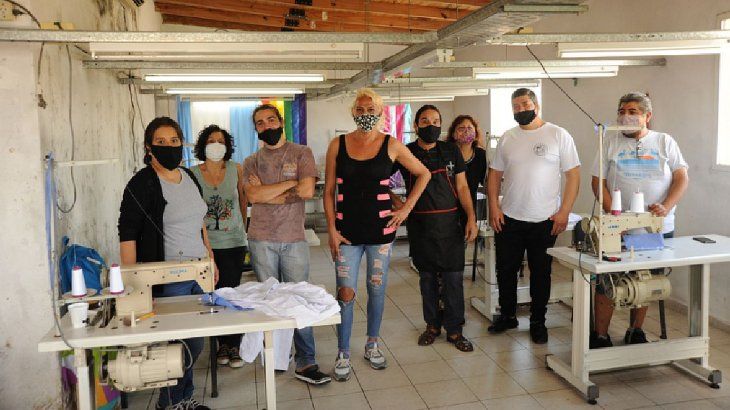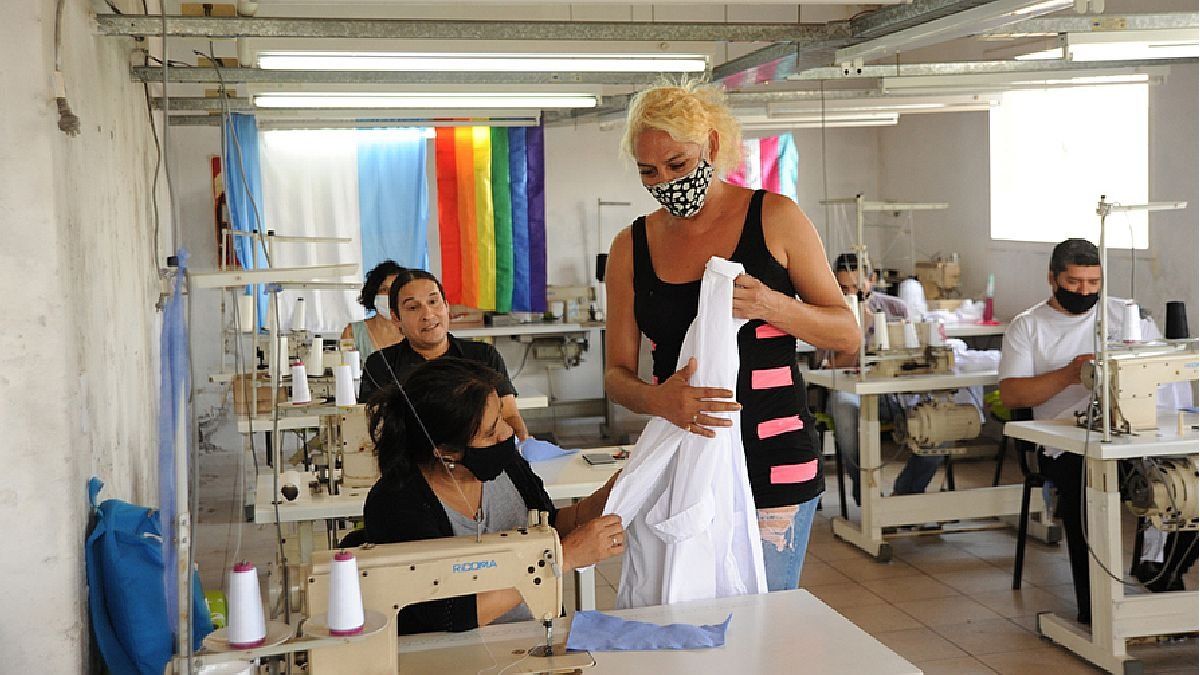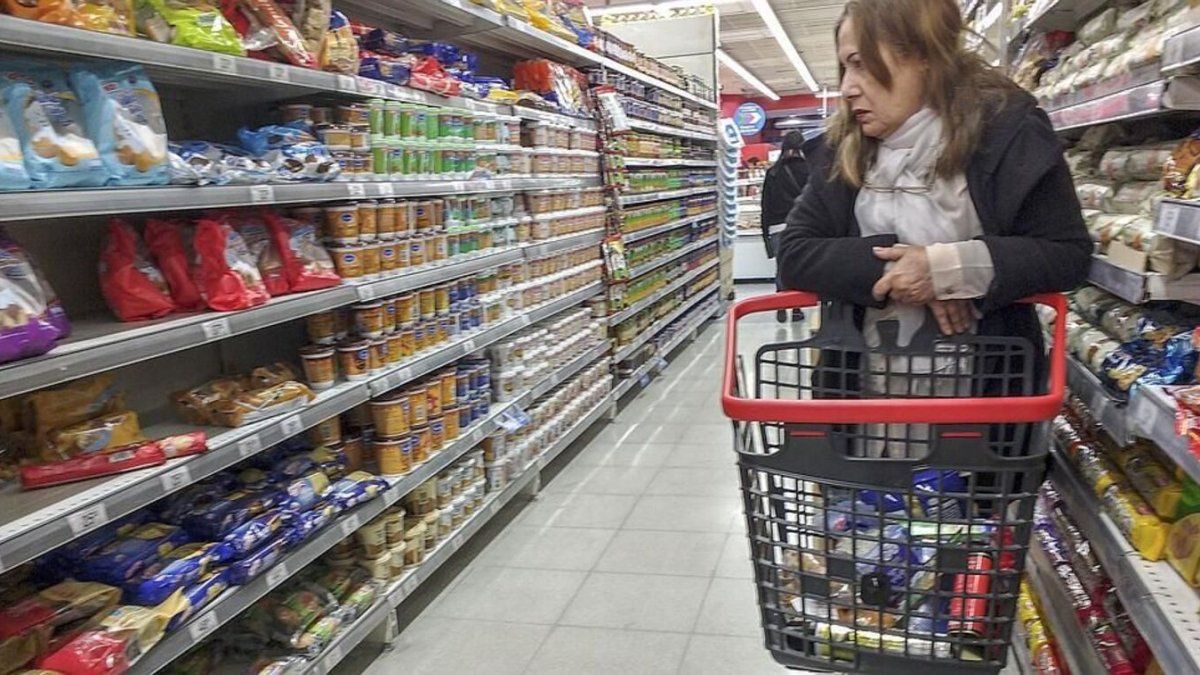In this article I will analyze some data that reflect the situation of exclusion that the transvestite and transsexual community is going through in our Republic and a proposal that emerged from the group itself, to counteract it. These are cooperatives, an old form of association in our legal system, which according to the latest survey carried out by the National Institute of Associativism and Social Economy (Inaes), and together with mutuals, They generate 500,000 jobs and contribute about 10% of the Gross Domestic Product of Argentina.
Before entering the subject of cooperativism, it is possible to make some preliminary scales. The situation of the transvestite and trans community is not simple and there is not much information about it.
According to Yogyakarta Principles, on the application of international human rights law in relation to sexual orientation and gender identity, arising from the 2006 summit “… Human rights violations based on people’s actual or perceived sexual orientation or gender identity constitute a global and ingrained pattern that is cause for serious concern. These violations include extrajudicial killings, torture and ill-treatment, sexual assaults and rapes, interference with privacy, arbitrary detentions, denial of employment or educational opportunities, as well as serious discrimination in enjoyment. of other human rights. “
In the last 15 years, LGBTIQ + groups have advanced in the recognition of rights, such as gender identity laws, equal marriage, transvestite – trans labor quotas, among others. Nevertheless, The problem of exclusion that transvestites and transsexuals continue to suffer has led some of its most prominent representatives to seek alternatives to access a different, more dignified life.
It is interesting to see in some of the rules enunciated, a brief statement of motives tending to base on the complex framework that constitutes the situation of transvestites and transsexuals in our country. As an example, in the explanatory memorandum of Decree 721/2020 on the employment quota for transvestite and transsexual people, it is stated that: “it is of vital importance to transform the structural pattern of inequality that perpetuates the exclusion of this population that has a life expectancy of between 35 and 40 years approximately. ”, which also “According to data from the LGBT community, it is estimated that 95% of trans people do not have access to registered employment.” And that “about 60% have not been able to finish their secondary studies.”
Without failing to mention that for these reasons the data collected by the LGBT community is used, due to the lack of proper surveys of the State, it is no less true that, in recent times, some data from these minority groups have begun to be measured.
Cooperativa Transformando Caminos Gualeguaychú.jpg
Transformando Caminos is one of the first inclusive cooperatives that arose from the joint work of many unemployed people, mainly trans girls who were going through different problems due to lack of work.
The Technical Report of the Pilot Test Municipality of La Matanza, prepared June 18-29, 2021, is one of the few surveys that can be found. In that report, a population sample of 209 people from the group was taken, made up of 140 transvestite people, 11 transsexuals, 8 transgender, 32 trans men, 15 trans women, one intersex person and 2 with another orientation.
In this report it appears, regarding the work activity they carried out, out of a total of 169 respondents, 30 were employed, 49 were self-employed, 72 practiced prostitution, 7 were Employers and 11 were engaged in religious activity. In turn, 73.2 percent were or had been in a situation of prostitution. Regarding health coverage, of the total (209 people), 168 had neither social work nor prepaid or state plan.
If we look at other areas such as education, out of 209 people, 32 had not completed their primary education, 63 completed that level of studies, 71 did not complete the secondary level, 31 managed to complete the second level of education, 7 had a tertiary level or incomplete university and only 4 had completed the third level of studies.
These numbers reflect in some way the serious situation of exclusion faced by this group and which is further aggravated when we notice that the lack of statistics ends up hiding the hard data of reality under the rug.
Faced with this exclusion, which transvestites and transsexuals know so well, some voices recognized today were raised, such as that of the activist Lohana Berkins, of the transvestite collective, who knew how to identify these problems and understood that beyond the militancy for rights, it was imperative to advance in a plan that would allow the girls of their collective to leave the world of prostitution, drugs and alcoholism or, as they call it, the world of “night”.
In 2006, Lohana proposed to 21 of her companions, founding a work cooperative that would allow them to have a salary, a social work and, above all, a common place where they could help their companions.
Thus it was that in 2007, and after much insistence, they obtained the legal status of the Cooperativa Taller Escuela “Nadia Echazú” (in honor of another renowned transvestite activist), dedicated to the manufacture of white clothes and other products of the textile industry. Over time, this company took on its own flight and was recognized by national and international institutions and organizations for promoting social integration. The National Institute of Associativism and Social Economy gave them a house in the Crucecita neighborhood, in Avellaneda, where they carry out their activities to this day.
The idea was a total success, since by 2010 they came to employ 65 workers in the textile industry, all transvestite and transsexual girls. As its president told me, Breeze Charlotte Escobar -In an interview we had this year-, this achievement was very important, because beyond the production or performance of the cooperative, they were able to open a welcoming space for transvestite girls, who until that moment had no other way of subsisting than it was not that of prostitution.
In that interview, I listened to Brisa explain to me about the success of the cooperative, because not only had it served to get a salary for her colleagues, but that job also gave them social security, education, job training and a place to share their stories. He says that one of the biggest concerns for which the cooperative originated was life in adulthood, when the body is no longer that of 17 or 20 and making money in prostitution costs more and more until hardly , they come to cover the costs of a place to sleep However, the enormous strength and emotion expressed by the transvestites of the cooperative, sometimes is not enough to resist the onslaught of the local economy, the pandemic and the ever-present exclusion.
As proof of this, Brisa points out that during the previous government they had to reduce the plant to 35 people and that during the pandemic they were only able to sustain eleven of them, which persist to this day.
At this point, is the center of this work, because as we have seen so far the transvestites of the cooperative “Nadia Echazú” embody the deepest sense of cooperativism. Faced with a very adverse, if not dramatic, situation, they have decided to organize voluntarily making the end pursued by the International Cooperative Alliance (ACI) in 1995, which stated that cooperatives should be open to all people capable of using their services and willing to accept the responsibilities of being a member, without social, political, religious, racial or gender discrimination.
On this point, and with legislative correctness, our cooperatives law No. 20,337, in its article 2, paragraph 7, stated that cooperatives “They do not have as main or accessory purpose the propaganda of political, religious, nationality, region or race ideas, nor do they impose admission conditions related to them”, omitting the gender issue, which seems to find a safe niche here.
According to the International Cooperative Alliance, cooperatives are organizations democratically managed by members, who actively participate in setting their policies and making decisions. The people chosen to represent and manage the cooperatives are accountable to the members. The participation of the partners is a characteristic of its management. Everyone has the same possibilities to express their opinion, present work proposals and comment on their experience, creating responsibility and involvement in the partners, which helps to achieve better results.
Cooperatives are autonomous self-help organizations, managed by their members. If they sign agreements with other organizations, including governments, or if they raise capital from external sources, they do so on terms that ensure democratic control by their members and maintain their cooperative autonomy.
In the case of Cooperativa Nadia EchazúFrom its origin and during the Lohana presidency, it received strong support from the state, which not only provided them with a physical space where they could carry out their activity, but also gave them the place to contract, presenting themselves to different tenders for the production of overalls and bed sheets. They are currently being tendered again for the production of sanitary kits in the framework of the Covid-19 pandemic.
Cooperativa Nadia Echazú 2.jpg

Kindness: Todxs
According to ICA (1995), cooperatives also provide education and training to members, elected representatives, managers and employees so that they can contribute effectively to the development of their cooperatives. They inform the general public, especially young people and opinion leaders, of the nature and benefits of cooperation.
In this regard, in the Cooperativa Nadia EchazúCurrently, different basic knowledge workshops are held, which last between 1 and 2 months. Other longer workshops are also given, those of tailoring, industrial cutting, haute couture, sublimated, embroidery and marketing.
It is not minor, to point out that those principles that govern cooperativism are closely related to the principles of the social economy. This was highlighted by the Consultative Committee of the European Commission of Cooperatives, Mutual Societies, Associations and Foundations (CMAF).
In the local context, cooperatives have been incorporated into the organizational forms of the popular economy, analyzed in the orbit of the National Registry of Workers of the Popular Economy (ReNaTEP), in its report of May of this year 2021 .
In this sense, the need to generate a political proposal clearly associated with the consolidation of situations of social exclusion has been noticed in Argentina and the world, understood as the impossibility of a large part of the population of our countries to reproduce their life in accordance with parameters socially “worthy” and, in many cases, even in biological terms. The ever-deepening tendency to exclude workers from employment or to include them under precarious and unprotected forms has crystallized in this situation of social exclusion, which, far from being reversed, seems to be increasing.
The case of the Cooperativa Nadia Echazú clearly demonstrates that cooperativism could be an extremely useful tool for this group, which would allow them to advance – in their own way and with their rules – with undertakings not exempt from risk, towards a more dignified life and with greater integration in the community. society.
This end is only possible with the help of the State to measure the data and formulate assistance policies that allow these projects to be sustained over time. I want to express my enormous gratitude to Brisa Charlotte Escobar and her colleagues, for opening the doors of the Cooperative to me and telling me this story so important to our society.




